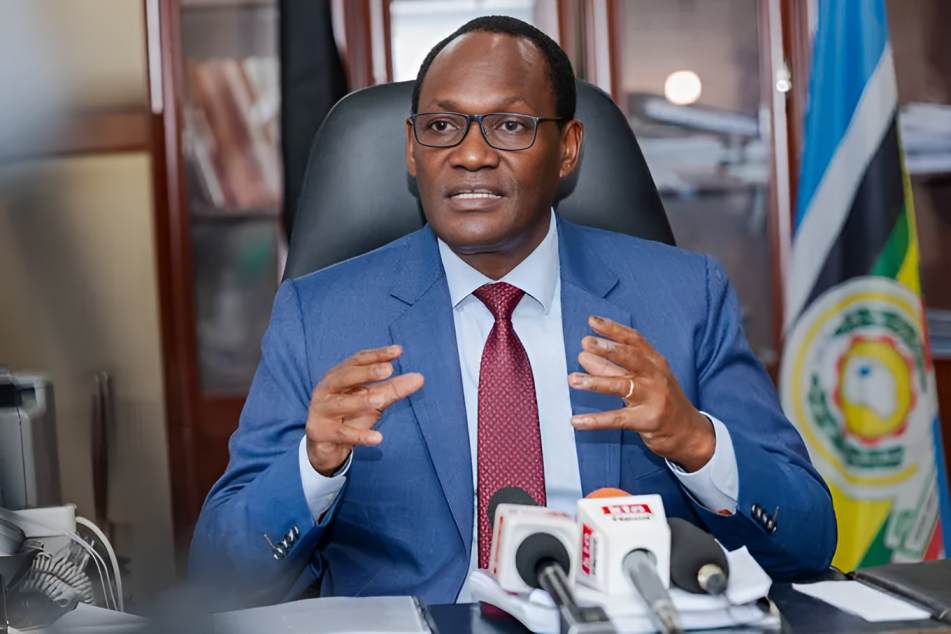Where’s the money? Treasury PS faces fiery Parliamentary probe

In the audit of the State Law Office for the 2022/23 financial year, Auditor General Nancy Gathungu found that Sh116.83 million was collected from 15 out of 34 gazetted marriage centres.
Lawmakers have summoned Treasury Principal Secretary Chris Kiptoo to explain concerns over missing funds collected through the government’s eCitizen platform, amid growing questions about the system’s transparency and control.
The National Assembly’s Public Accounts Committee (PAC), chaired by Tindi Mwale (Butere), wants Kiptoo to appear before it after revelations that revenue generated from the platform does not reflect in the Central Bank of Kenya’s accounts under the National Treasury.
Mwale on Tuesday said the problem cuts across several state departments and must be addressed urgently.
“The PS must come and shed more light on this matter because it is an issue that affects government departments,” said Mwale.
PAC had in its previous reports asked the Treasury to streamline eCitizen operations and improve efficiency. However, lawmakers noted that these recommendations have not been implemented, leaving gaps in the system's accountability.
The issue resurfaced when Solicitor General Shadrack Mose appeared before the committee to respond to the Auditor General’s 2022/23 report on the State Law Office. Mose said he was unable to state how much revenue the office collects through the platform, which provides services such as marriage certificates.
“E-citizen does not give us a report,” Mose told MPs, adding that he did not have records from the Treasury on revenue collected through the system.
The response left lawmakers dissatisfied, with several expressing frustration at what they termed a lack of transparency and control in the platform’s operations.
Turkana MP Joseph Namwar suggested there was deliberate misuse of the system, saying: “It is not clear whether the money collected through the eCitizen platform ends at the Exchequer accounts.”
Aldai MP Marianne Kitany supported the call to summon Kiptoo, warning that the problem points to deeper failures within the government’s digital revenue system.
“There are cases of billions of public funds being at the eCitizen. Its reporting mechanism is wanting,” Kitany said. She also asked for clarity on where the system is domiciled.
Rarieda MP Otiende Amollo noted that PAC’s recommendations on the matter date as far back as 2017 but have been ignored by the Treasury.
“The National Treasury needed to have acted on this matter way back in 2017. There are so many queries on this eCitizen platform and all we want to do is issue a special letter to the National Treasury to explain why it has not acted on the recommendations of PAC,” said Amollo.
In the audit of the State Law Office for the 2022/23 financial year, Auditor General Nancy Gathungu found that Sh116.83 million was collected from 15 out of 34 gazetted marriage centres. However, no records were available for the remaining 19 centres due to missing periodic financial reports.
Gathungu said the failure to submit reports from Deputy County Commissioners (DCCs) and Assistant County Commissioners (ACCs), who are gazetted to conduct and register civil marriages, raised serious concerns about internal controls.
“In the circumstances, the existence of effective internal controls that ensure all revenues are collected and reported on in a timely manner could not be confirmed,” the audit stated.
Mose attributed the lack of accurate data to constant staff transfers among DCCs and ACCs, complicating tracking efforts.
Adding to the concern, Gathungu recently revealed that about Sh44.8 billion paid through eCitizen remains unaccounted for. She warned that the government does not have full control of the platform and instead relies heavily on private vendors for core operations, including revenue collection, onboarding of services, and system configuration.
“Lack of full control of the system exposes the government to the risk of revenue leakages, lack of full accountability, system unavailability or downtime, security vulnerabilities and business continuity threats,” she stated.
According to the Auditor General, the vendors’ role in running the system limits government oversight and hinders future development of the platform, raising serious questions about governance, financial integrity, and digital sovereignty.
